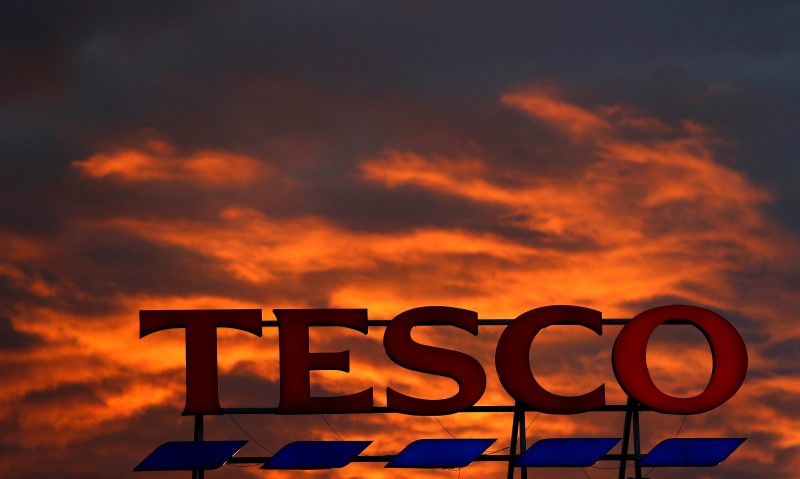LONDON (Reuters) - Tesco (L:TSCO), Britain's biggest grocery chain, has pulled dozens of Unilever (LON:ULVR) products from its website after a disagreement over prices in the wake of a partly Brexit-driven decline in the British pound.
The dispute between two of Britain's best-known companies shows how the Brexit decision has exacerbated tensions between suppliers and retailers, who are battling for profits as consumers are increasingly savvy about shopping.
Unilever has been trying to raise prices across a wide range of goods by about 10 percent to offset the higher cost of imported commodities, Britain's Guardian newspaper reported.
As of Wednesday evening, Unilever products including Marmite spread, Ben & Jerry's ice cream, Lynx body spray and PG tips tea were unavailable on the retailer's website, but the shortage had not yet affected stores, a Tesco spokesman said.
"We are currently experiencing availability issues on a number of Unilever products. We always work to ensure customers get the best possible prices and we hope to have this issue resolved soon," he said.
A spokesman for Unilever, which will report financial results on Thursday, declined to comment.
Last week, Tesco boss Dave Lewis, a former Unilever executive, hailed a transformed relationship with suppliers as a major factor in the grocer reporting a 60 percent rise in first half profit and the setting of tougher profitability targets. But he indicated it was not a given that suppliers should be able to recoup the cost of the falling pound as they had not always passed on benefits when sterling was much stronger. Most analysts and economists believe that sterling's slump will lead to higher grocery prices, following years of deflation due to a price war between the big chains.
However, last month Mike Coupe, CEO of Sainsbury's (L:SBRY), Britain's No. 2 supermarket, said the currency's depreciation would not necessarily lead to higher grocery prices, as it could be offset by lower commodities prices and stiff competition.
Tesco last year pulled a range of Coca-Cola soft drinks, including Schweppes, after what industry publication The Grocer said was a row over pricing.
Since Britain's shock decision in June to leave the European Union, its currency has plunged almost 18 percent against the U.S. dollar. Three-quarters of British food manufacturers said they have seen an increase in the price of imported ingredients, according to a survey published earlier on Wednesday.

The average price for a basket of 35 commonly bought goods cost 83.19 pounds ($103.45) in September, according to price tracker mySupermarket.co.uk, up 57 pence from May, the month before the vote.